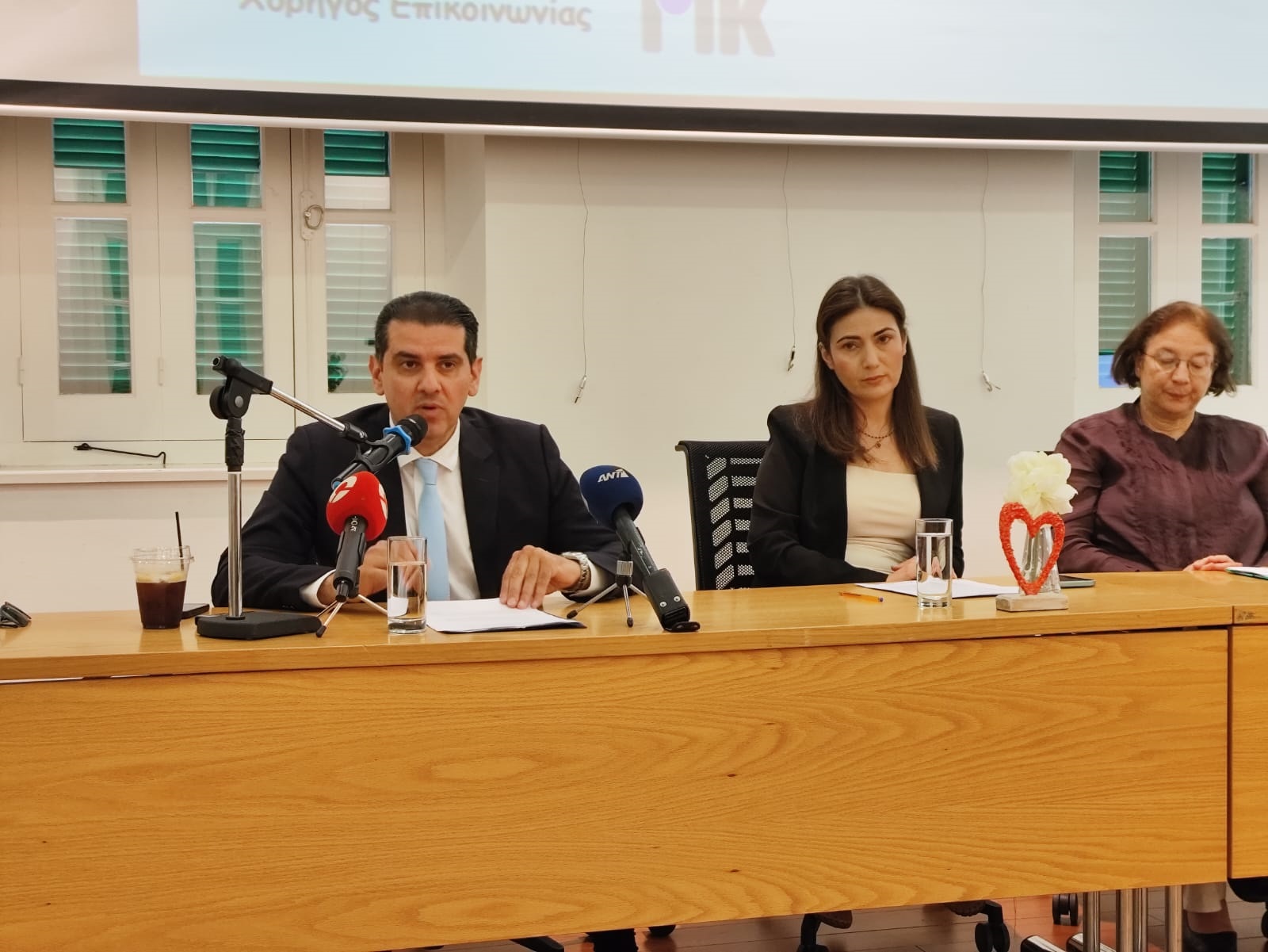Health Minister Michael Damianos delivered a speech on the occasion of World Multiple Sclerosis Day on Friday, emphasising the state’s duty to support patients in remaining active citizens.
According to Damianos, more than 2,500 people in Cyprus and over 2.5 million people worldwide live with multiple sclerosis (MS), with 65 to 70 per cent being women aged between 20 and 40.
“Multiple sclerosis attacks the nervous system through an autoimmune mechanism, destroying myelin – a substance responsible for transmitting nerve impulses. While the pathophysiology of the disease is known, its exact causes remain unclear,” he said.
The minister noted that MS is associated with a range of symptoms that affect not only the health and quality of life of patients but also that of their families and broader social networks.
Commending the work of the Cyprus Multiple Sclerosis Association, Damianos announced that the health ministry would symbolically donate €500 to support the organisation.
President of the Cyprus Multiple Sclerosis Association, Georgia Dimofanou, pointed to an increasing trend of new cases in Cyprus. This development, she said, required the drafting of a national strategy for multiple sclerosis aiming to ensure the provision of high-quality services for patients.
“We demand from the new legislation the recognition of invisible disabilities and their invisible symptoms. Disability is not only motoric. Disability is any form of deficiency or handicap that causes a permanent or indefinite physical, mental or psychological limitation in the individual,” she said.
She stressed that MS substantially reduces or prevents individuals from performing essential activities that are vital for quality of life. The disease significantly affects patients in their daily lives, often in ways overlooked by employers and families.
Symptoms can vary widely, sometimes lacking obvious physical signs or mimicking other conditions, which makes diagnosis and support more challenging.
Dimofanou called on the transport ministry to provide ramps and elevators in all public buildings, appropriate pedestrian crossings, and accessible public transport.
The transport ministry responded by affirming the importance of developing infrastructure for people with mobility difficulties. It noted that cooperation with relevant organisations was essential to building a solid foundation for future developments in the sector.
Director of the Department for Social Inclusion of Persons with Disabilities, Christina Flourentzou, emphasised the need for the full integration of people with disabilities, including MS patients. She noted that a new legislative framework, developed in collaboration with the Cyprus Confederation for Organisations of the Disabled (Kysoa), aimed to modernise and expand services and social benefits to improve the quality of life for disabled citizens.






Click here to change your cookie preferences